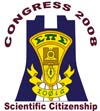 |
AbstractThose of us who are involved day-to-day in science and technology are confronted, perforce, with reality, but in government science policy there are strong motivations to avoid reality either in the formulation of programs or in the analysis of their success. Some of these problems arise from our democratic system, which, according to Winston Churchill in 1947, is "the worst form of government, except for all those other forms that have been tried from time to time." Improved science policy mechanisms should include the elimination of earmarks for public programs, especially in science and technology; the upgrading of the President's Science Advisor and of his staff and support; the reconstitution in modern guise of an effective President's Science Advisory Committee-- PSAC; and for the Congress, a restoration of the highly successful Office of Technology Assessment-- OTA. The problems that must be faced squarely are the provision for the U.S. government and the Congress of proper analyses of our present societal problems and opportunities and their susceptibility to solution by S&T programs. High among these is the general level of S&T talent in the United States, where our current immigration and visa regulations and practices deny us what used to be a steady stream of talent into the country either in the short term or for graduate work in S&T, where the scientist, mathematician, or engineer would very likely stay to work in the United States. Other needed reforms are to change the present emphasis on marginal science and technology to those programs that could really make a difference. In the talk, I provide some examples of these problems and of some rousing successes and how they came about. Biographical SketchRichard L. Garwin was born in Cleveland, Ohio, in 1928. He received a B.S. in Physics from Case Institute of Technology, Cleveland, in 1947, and a Ph.D. in Physics from the University of Chicago in 1949. He is IBM Fellow Emeritus at the Thomas J. Watson Research Center, Yorktown Heights, New York. After three years on the faculty of the University of Chicago, he joined IBM Corporation in 1952, and was until June 1993 IBM Fellow at the Thomas J. Watson Research Center, Yorktown Heights, New York; Adjunct Research Fellow in the Kennedy School of Government, Harvard University; and Adjunct Professor of Physics at Columbia University. In addition, he is a consultant to the U.S. government on matters of military technology, arms control, etc. He has been Director of the IBM Watson Laboratory, Director of Applied Research at the IBM Thomas J. Watson Research Center, and a member of the IBM Corporate Technical Committee. He has also been Professor of Public Policy in the Kennedy School of Government, Harvard University. From 1994 to 2004 he was Philip D. Reed Senior Fellow for Science and Technology at the Council on Foreign Relations, New York. He has been a member of the Scientific Advisory Group to the Joint Strategic Target Planning Staff and was in 1998 a Commissioner on the 9-person "Rumsfeld" Commission to Assess the Ballistic Missile Threat to the United States. From 1993 to August 2001, he chaired the Arms Control and Nonproliferation Advisory Board of the Department of State. His work for the government has included studies on antisubmarine warfare, new technologies in health care, sensor systems, military and civil aircraft, and satellite and strategic systems, from the point of view of improving such systems as well as assessing existing capabilities. Excerpted from “The Garwin Archive” [ http://fas.org/rlg/ ], used with permission. |
||
